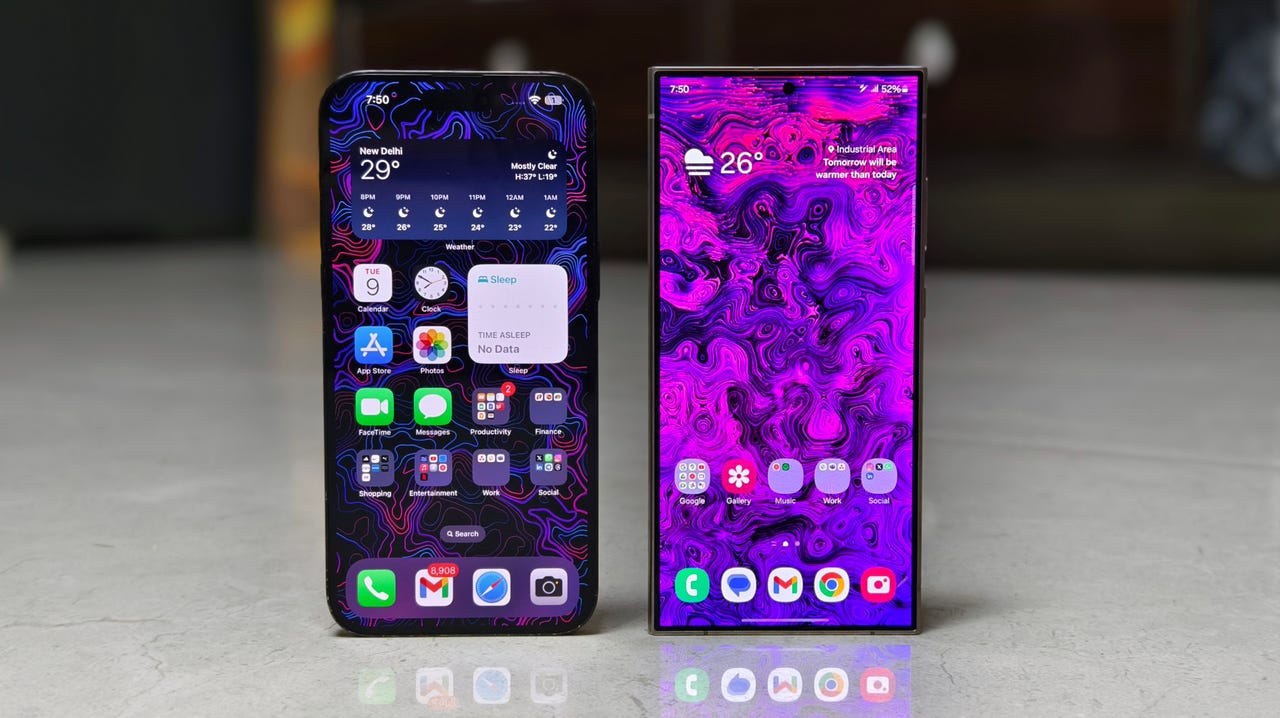5 useful features iOS should steal from Android

I've been an Android user for a long time, more precisely, since version 1.5. Before that, I had a brief dalliance with the iPhone, but quickly realized that iOS was not the mobile operating system for me. Given how long I've been using Linux, that should be no surprise.
Apple's iOS is not all bad. In fact, there are quite a few things it does right that Android could take note of. But what about the other way around? There are a handful of handy features iOS could borrow from Android, and many iPhone users might not even be aware of what they're missing. So, let's break down the list of the top five Android features I'd love to see on an iPhone.
1. A clutter-free home screen
This is a big one for me, as I've always been fond of a minimal home screen. It goes back to the days of being triggered from seeing Windows desktops cluttered by a sea of icons, leaving me to wonder how anyone could work with a mess like that at all. The same thing holds true for the iOS home screen. The wall of icons -- of which there is no escape -- could be a better user experience.
Also: 5 features I wish Android would borrow from iOS
On Android, I can dump all the icons for a home screen devoid of clutter, and only keep the launchers I use most often. To that end, I have a single row of folders, each serving a specific purpose, with quick access to everything I need. At the same time, I have the App Drawer, which gives access to all installed applications (with an included search feature).
Apple should do itself a favor and add the ability to configure the home screen to appease those of us with a flare for minimalism.
2. Gesture navigation
When I first started using gesture navigation on Android, I was immediately sold. Instead of reaching up to the top left corner of an app, I could swipe left or right from the display edge to go back. It just makes sense. Couple this with the swipe up to reveal the App Drawer and swipe down to reveal the Notification Shade and you have a reasonably complete gesture navigation system.
Also: Need a news app? Here are my top 5 across Android, Linux, and iOS
Unfortunately, the same can't be said for iOS, as the lack of gesture navigation is a little perplexing. For a company that does multi-touch gestures better than anyone else, why hasn't it adopted more gesture-based navigation on its mobile OS?
3. Better customization
Let's face it: iOS could be more customizable. When you use an iPhone, you do things Apple's way, and that's that. With Android, the sky's the limit when it comes to customization, and that's one of the best features of the platform. Don't get me wrong, I understand why Apple locks down iOS, and I can respect that decision. But it should at least offer a more customizable version of the operating system for those who'd prefer it. It would be a welcome change for users who like to make their operating systems work for them instead of against them.
4. Under-display cameras
Before I even mention this, it is rumored that Apple will release an under-display camera sometime in 2026. In fact, according to Mac Rumors, LG Innotek entered the preliminary development of such technology back in 2023. But why did it take so long? Does Apple have a strange love affair with the camera notch?
Also: Google's Pixel 8a is getting AI features and seven years of security updates, leak reveals
Android users complained about this years ago, and Google listened. The latest Pixel phones, for example, have no camera notch; they're just all screen all day. Before this, I never thought an under-display camera would make that much difference, but it does, and Apple would do well to follow through with this feature.
5. Cheaper phones
Do you want to know why Android ultimately has the global market share for mobile devices? Inexpensive phones. The reality is that there are countries with millions (even billions) of consumers who cannot afford to spend huge amounts of money on a mobile phone. Google knew this early on, and the wide selection of affordable phones contributed to Android's success in capturing the market in those countries.
As long as there are plenty of cheap Android phones and no cost-effective iPhones, iOS will never have a chance to compete globally at that level.
Also: Apple keeps insisting your iPhone doesn't need a case. Is anyone listening?
Sure, there are plenty more features iOS could borrow from Android, but the above list would be a great start. Don't get me wrong, the under-display camera is the only entry from the above list likely to be included on iOS. Ultimately, that's fine because I like knowing there's at least one mobile operating system that does everything I want and does it well: Android.
